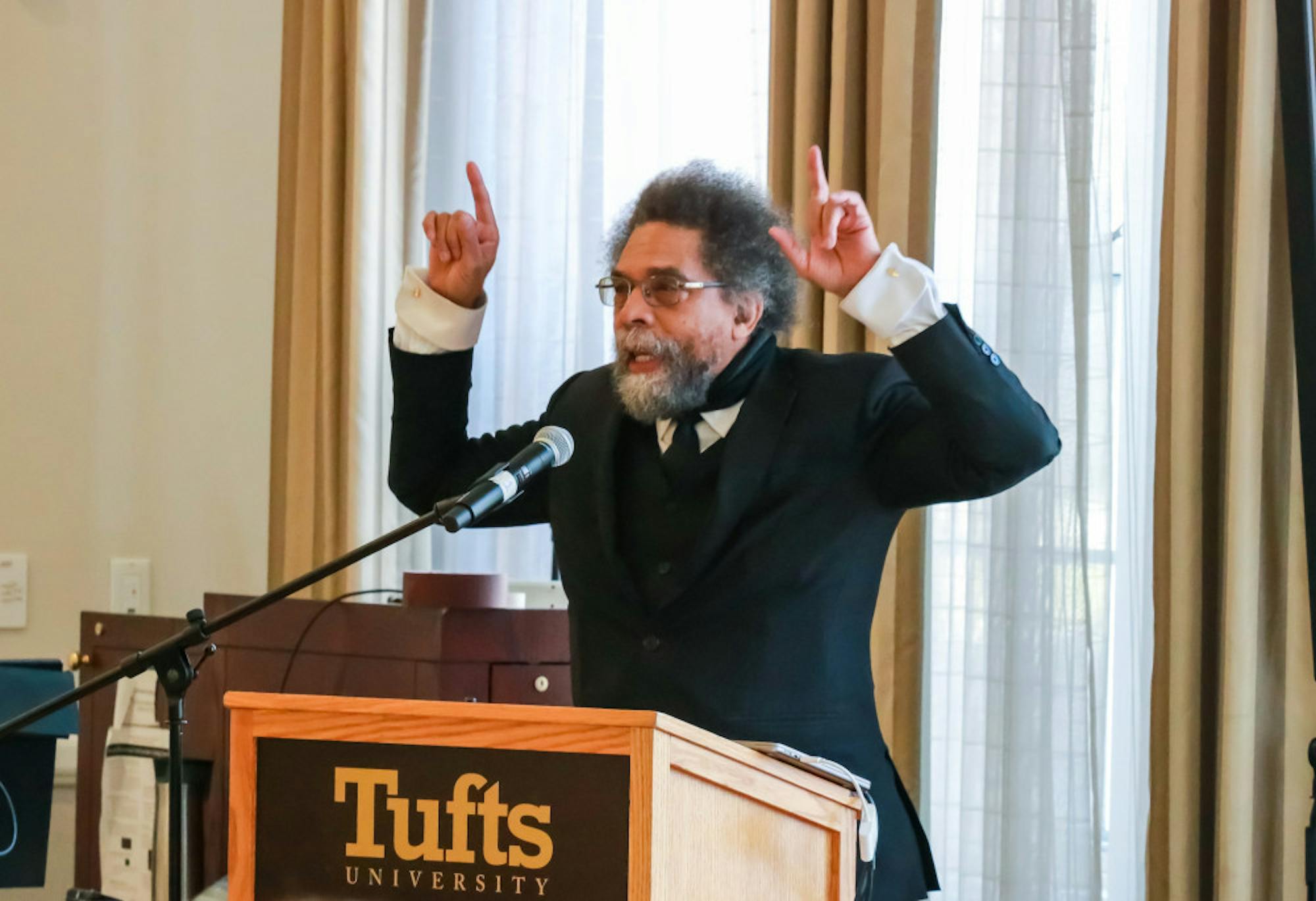The Department of International Literary and Cultural Studies hosted the “Dystopia Now!” symposium, focused on representations of dystopia in media and popular culture, on Friday. Dr. Cornel West opened the event with a keynote address.
In his wide-ranging speech, West discussed how studying dystopia can provide insight into our modern condition and what it means to be human.
“We always want to connect the utopian with the dystopian; it goes hand in hand,” West said. “This [ILCS] department has the audacity to say, ‘Come with us as we wrestle with … forms of death: physical death, social death, psychic death, spiritual death.’”
West ended his keynote by asking attendees to immerse themselves in literature from all eras, not just contemporary work.
“Don’t get socialized into one paradigm or one way of looking at the world or one school of thought; be improvisational enough to have confidence in yourself,” West said. “Don’t participate in the oligarchy of the quick and read only the people who are alive and breathing. … [Read] the great voices of the dead, those that wrestled with the same kinds of challenges of what it means to be human.”
Following West’s speech, faculty and students presented on different interpretations of dystopia, from video games to film.
Salomé Albright, a junior, spoke on a dystopian depiction of adolescence in the graphic novel “Black Hole” (1995).
“It had this beautiful blend of existentialism and intimacy that I thought really captured the essence of adolescence,” Albright said in an interview with the Daily.
After focusing on femme theory and anti-colonial work in her studies, Albright decided she wanted “an opportunity to talk about something that was really just a fun read for me.”
During her speech, Albright drew parallels between adolescence and dystopian tropes, including “transition, sexual desire, fear, peer and parental isolation, shame and displacement.”
Milo Shields, a senior, explored dystopian video games, arguing that they are uniquely suited to present surreal stories.
“When it comes to film … you are limited somewhat to your budget,” Shields said in his presentation. “It costs a lot of money to do CGI, and it costs a lot of money to create surreal worlds. With video games, it is just as expensive to create a surreal world as it is to create a world that looks exactly like ours, so developers are given this crazy incentive and freedom to … create things that look nothing like the way our real world does today.”
For Shields, dystopian video games are a form of escapism.
“There is this catharsis that we get from either watching or playing in dystopian environments that makes our day to day worries and anxieties fade away in comparison,” he told the Daily.
Other presentations focused prominently on Russian literature and culture. Sarah Corrigan, who also helped organize the event, discussed the 1972 Russian film “Solaris.” Corrigan, a professor in the ILCS department, said Andrei Tarkovsky’s film “reverses the traditional dystopian approach to distorting and controlling human memory.”
“Instead of the human memory being a subject for authoritarian control, a vital human entity that we must protect against external contamination, Tarkovsky explores what we would call inner dystopia,” Corrigan said. “He’s more interested in how repressed memories haunt us and yet connect us to questions of immortality.”
Gregory Carleton, also a professor in the ILCS department, discussed how Russian attempts to create utopia have resulted in dystopia.
“Russia is one of the few countries where utopian ideas — and, therefore, their dystopian realizations — spill outside of literature,” Carleton said. “They become cultural practices and then national policy.”
Two lectures focused primarily on dystopian literature; J. Brandon Pelcher, an ILCS lecturer, talked about “eco-dystopia” and the reemergence of waste. John Lehman, who received his MFA from the School of the Museum of Fine Arts at Tufts in 2020, discussed Haruki Murakami’s “My Wind Up Bird” (1994) and his analysis of the text through illustration.
Alexandra Chreiteh, an ILCS assistant professor, discussed North African indigeneity in relation to Soviet internationalism and vampirism as an allegory for colonialism. Malcolm Turvey, the founding director of Tufts’ Film and Media Studies Program and a professor of art history and architecture, engaged with dystopian films such as “Nosferatu” (1922), “Alphaville” (1965) and “Mad Max: Fury Road” (2015).
Albright encouraged students to take ILCS classes.
“Looking at storytelling through multimedia lines is really a special thing that you get to do in this particular department,” she said.






